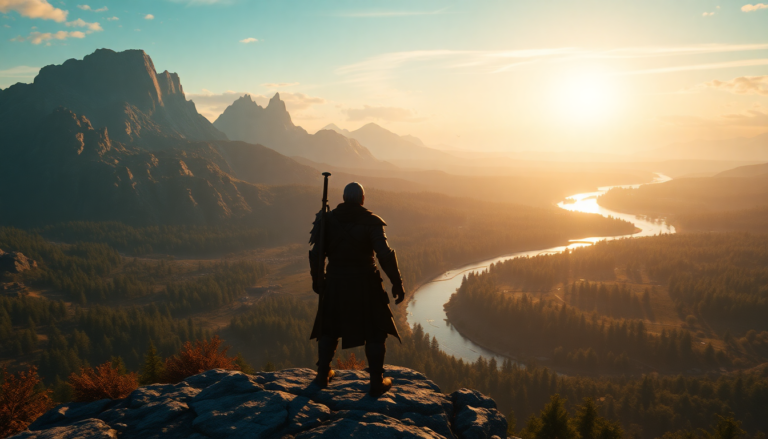Argomenti trattati
Open-world games have a unique way of captivating players, allowing them to step into the shoes of heroic protagonists equipped with extraordinary abilities. But what is it about these games that keeps players coming back for more? It’s not just the vast environments; it’s the profound sense of purpose and destiny that comes with navigating their expansive landscapes filled with challenges. As players embark on their journeys, they often become central figures in epic narratives, where their choices genuinely shape the game world.
The Chosen Hero Archetype
The idea of the chosen hero is a staple in the open-world genre. Many games capitalize on this trope, giving players immense power and agency as they set out on quests to save, conquer, or explore. The narrative often positions the player as a pivotal character within a grand story, creating a deep connection to the game world. Isn’t it thrilling to feel like your actions can change the course of history?
Take inFAMOUS Second Son, for example. Players step into the shoes of Delsin Rowe, a conduit capable of harnessing various elemental powers. Starting with fire abilities, players quickly unlock new skills from other powerful characters, leading to explosive gameplay. This sense of empowerment is exhilarating, reinforcing the fantasy of being an unconventional superhero, especially when faced with a world that tests your strength and resolve.
Similarly, in Biomutant, you take on the role of a mutated creature destined to change the world’s fate. Players navigate a fractured ecosystem where their decisions significantly influence tribal alliances and the future of a dying realm. The game’s narrative structure emphasizes the player’s role as a catalyst for change, deepening the feeling of being the central character in an unfolding story. How often do you get to decide the fate of an entire world?
Epic Challenges and Heroic Journeys
Immortals Fenyx Rising plunges players into the heart of Greek mythology, casting them as Fenyx, a demigod on a mission to save gods and humanity from a Titan threat. The gameplay and narrative intertwine beautifully, highlighting the player’s heroic status through challenging quests and divine powers. Each encounter with mythical beings drives home the sense of responsibility, reminding players that their actions have real consequences in the world.
Another standout title is Tears of the Kingdom, where players embody Link, the legendary hero fated to confront darkness in Hyrule. The game’s expansive world and rich lore envelop players in a prophecy that hinges on their actions. With a design that encourages exploration and growth, Link isn’t just a character; he’s a protector whose journey is intricately linked to the kingdom’s restoration. Can you feel the weight of that destiny?
Empowerment Through Choice and Progression
Shadow of War features Talion, a ranger fused with the spirit of Celebrimbor, granting him supernatural abilities essential for overthrowing Sauron. The narrative intricately weaves themes of fate and power, positioning the player as a crucial force in the battle between good and evil. With each conquest, players solidify their role as a formidable presence, showcasing how gameplay mechanics empower them to shape their destiny. Isn’t it empowering to know you hold the reins?
In Elden Ring, players start as an unassuming character but quickly evolve into a powerful being capable of mending or destroying the world. The unique structure, devoid of traditional quests, enhances the feeling of being a significant figure in a hostile environment. Every victory reinforces the player’s growing prowess, making it clear that they are not just participants in the game; they are its driving force.
Lastly, in Horizon Zero Dawn, players control Aloy, a hero whose fate is intertwined with that of her world. As a skilled hunter facing machine threats, her quest for truth and purpose positions her as a transformative figure. The narrative deepens the connection to Aloy, with each discovery underscoring her critical role in shaping the landscape. It’s a powerful reminder of how personal journeys can change everything.
Wrapping up this exploration is Skyrim, where players assume the mantle of the Dragonborn, a prophesied hero destined to absorb dragon souls and avert apocalyptic events. Throughout the game, players embody the chosen one archetype, with their actions and decisions profoundly influencing the realm’s destiny. Isn’t it fascinating how your gameplay can create such a vibrant narrative?
These narratives highlight the importance of player agency in open-world games, showcasing how they craft compelling stories around heroic journeys. Engaging with these expansive worlds offers not just immersive gameplay but also the thrilling experience of embodying the hero you were always meant to be.

